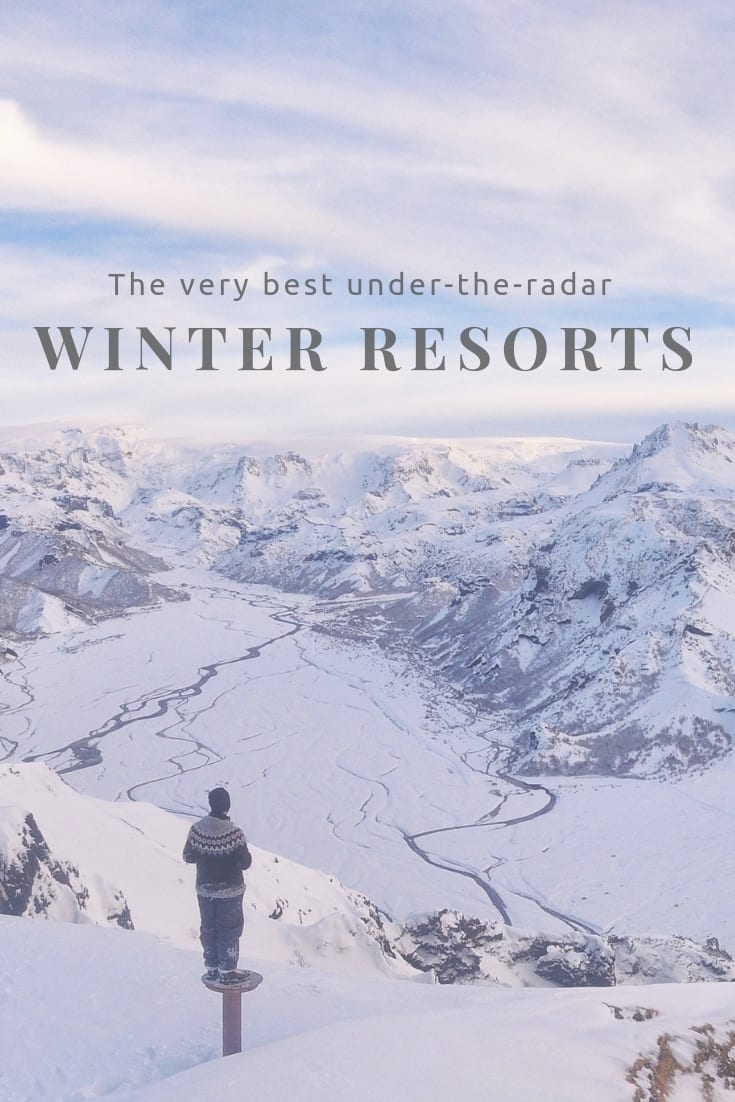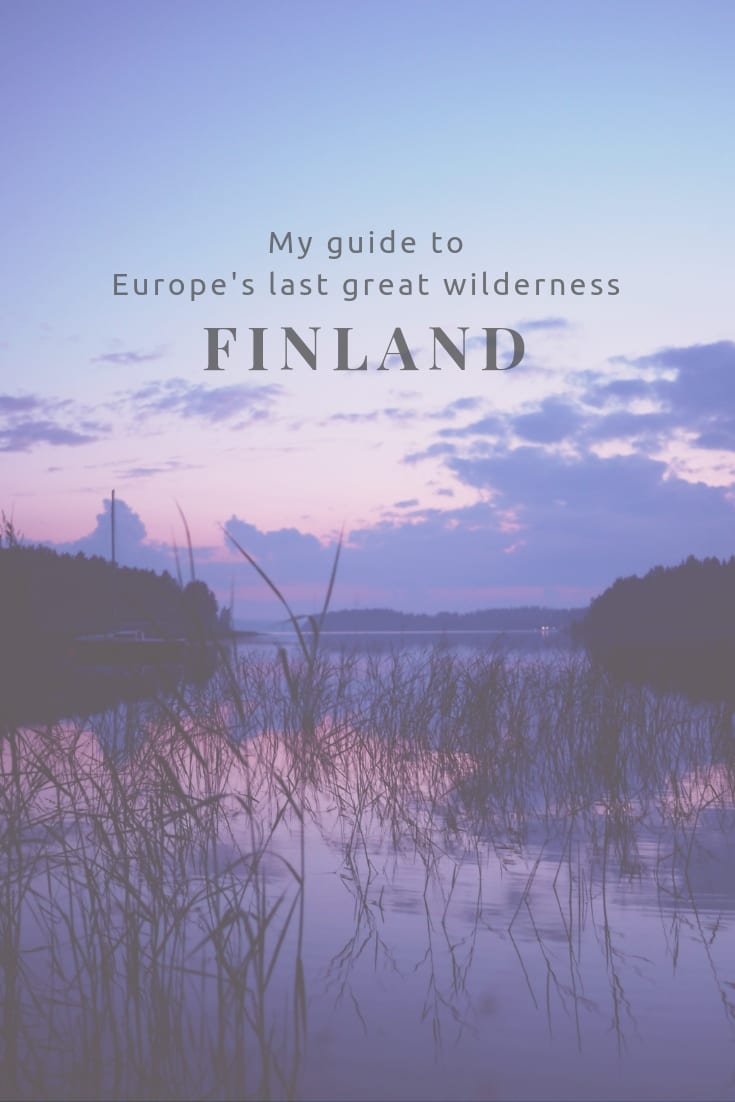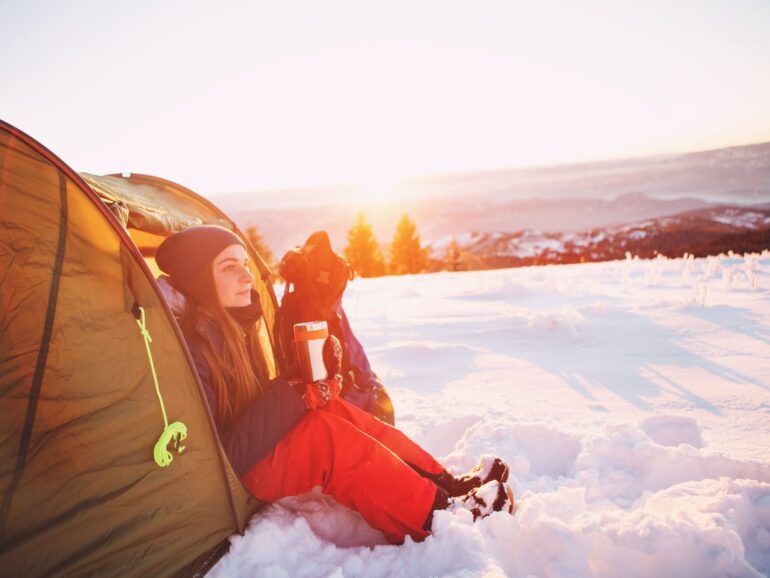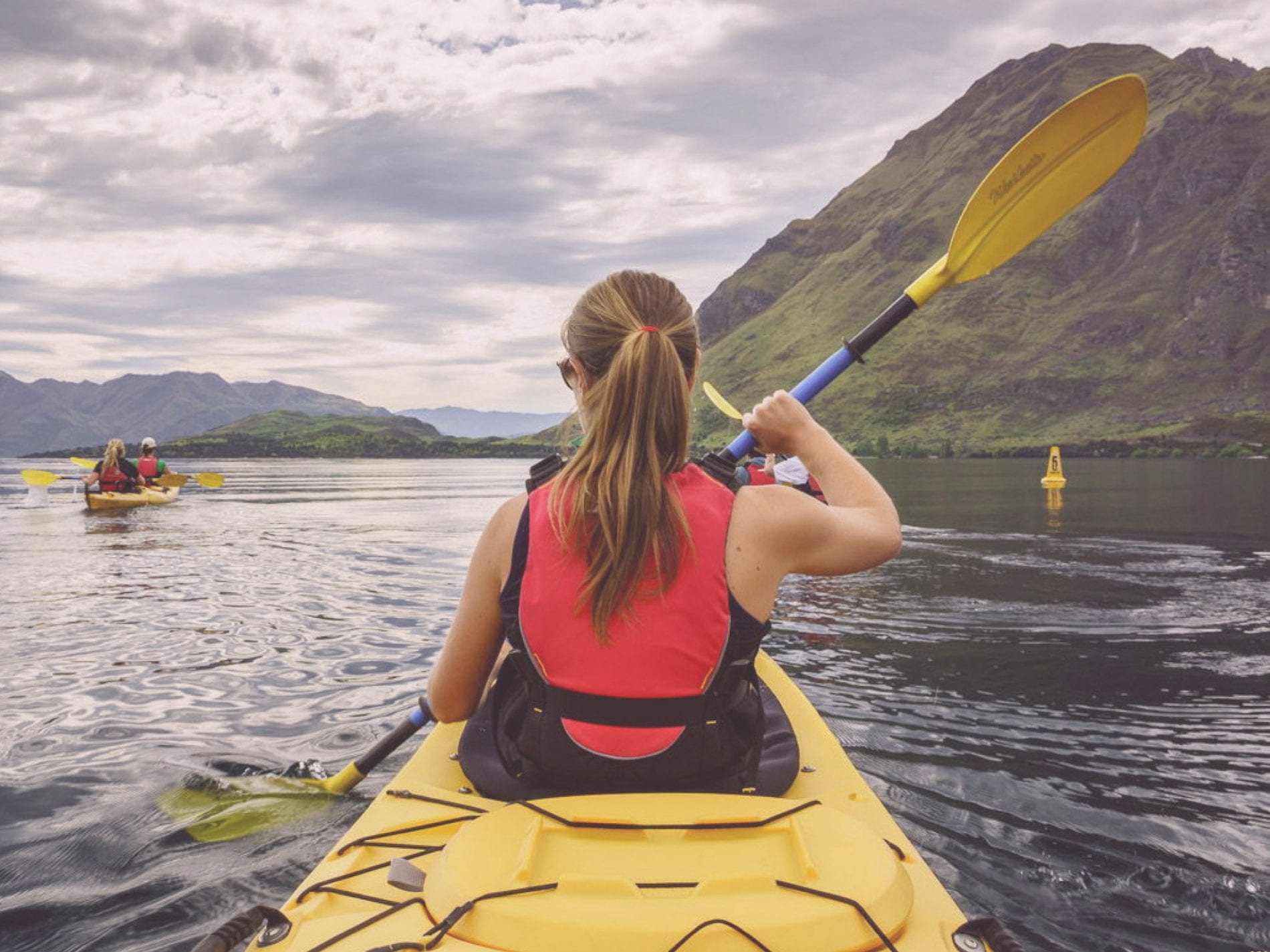At this time of year, temperatures are falling, but that shouldn’t stop you from getting out and exploring the natural world. In fact, hiking and camping can be winter-friendly activities, and they come with tons of perks.
When you get outside and explore the natural world in winter your favourite camping spot won’t be too crowded, so you’ll enjoy the view in peace and quiet, and nature will probably have a snow cover that will only enhance its appearance.
But, there is one important thing to remember when it comes to winter activities and that is you must be prepared for the cold temperatures or you risk suffering the effects of exposure. In this post, I’ve collated the best tips and tricks for outdoor adventures in winter to help you prepare for your cold-weather travel.
Camping and hiking in winter
Kit yourself out with the right gear
Equipment for cold weather camping will take up most of your budget so prepare to spend money here to ensure you have quality gear that does a great job of keeping you warm. Think of it as a long term investment and know that you’ll reap the rewards of your spending over multiple trips.
Remember, it’s not about the price, it’s about the materials and the technical design of the kit that determines quality. Essential items include a durable tent, a comfy down sleeping bag, cooking equipment and supplies, and a spacious backpack to carry it all in.
The right shoes and clothes are vital
Winter brings low temperatures and often ice and snow, so you need to dress appropriately. It is essential to dress in a mix of warm, breathable, and waterproof layers to reduce the risk of your core temperature dropping while you’re out in the cold.
- durable and waterproof hiking boots that you’ve worn in
- a few pairs of wool socks
- merino base layers
- waterproof outwear
- hat, gloves, sunglasses
Consider where you make camp
Before investing in a tent, make sure that the one you’re buying is made from high-quality materials and will last you for at least several years. It should protect you from the wind, and be waterproof.
If you’re travelling with a partner opt for a two-man tent but remember that larger tents, although more spacious, won’t be as cosy and will also be heavier to carry.
When you make camp, clear any snow and debris from the ground and choose a position that is sheltered from the wind. If you haven’t camped out in freezing or snowy conditions before watch some online tutorials from alpine camping experts to understand what is required.
Eat lots of calories and stay hydrated
Have you ever noticed that we tend to get hungry after a day out in the cold? That’s because our body uses up a lot of energy to keep blood flowing to our extremities. When we plan on spending a whole day outside, and/or sleeping outside, we need to eat lots of calories to help our bodies function normally despite the cold. It’s also really important to stay hydrated.
Remember to bring enough food and water with you, and make sure to have high-calorie trail snacks close at hand during the day.
Prevent cold injuries
Hypothermia and frostbite can have detrimental effects if they take hold of the body. Make sure to keep yourself warm and dry at all times, and if it’s possible, don’t go too far from civilization if you don’t have outdoor survival experience.
READ MORE WINTER TRAVEL GUIDES FROM WANDERLUSTERS






